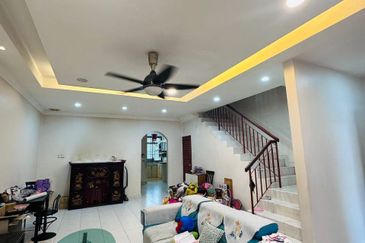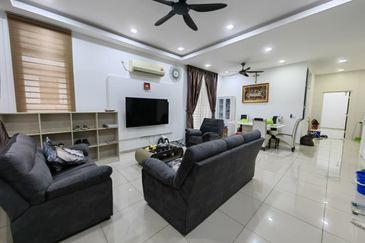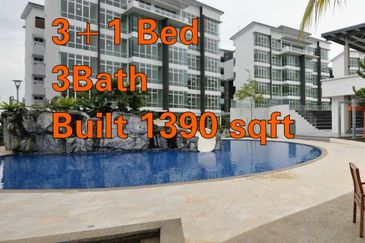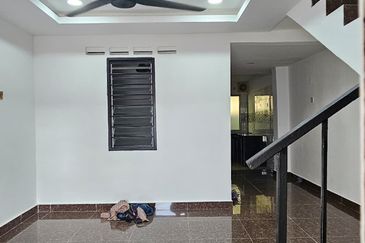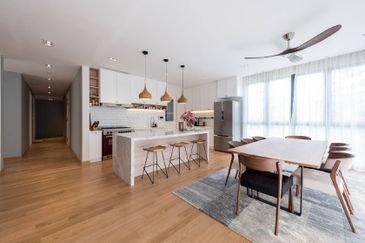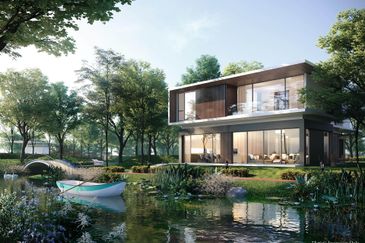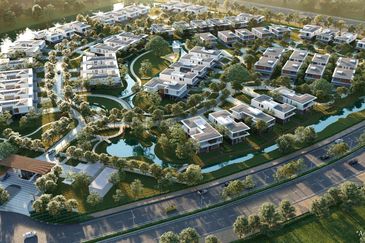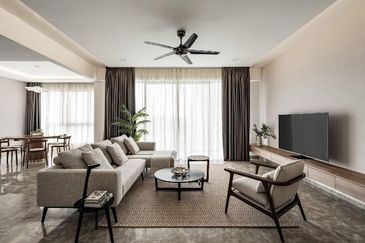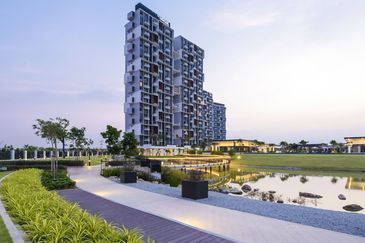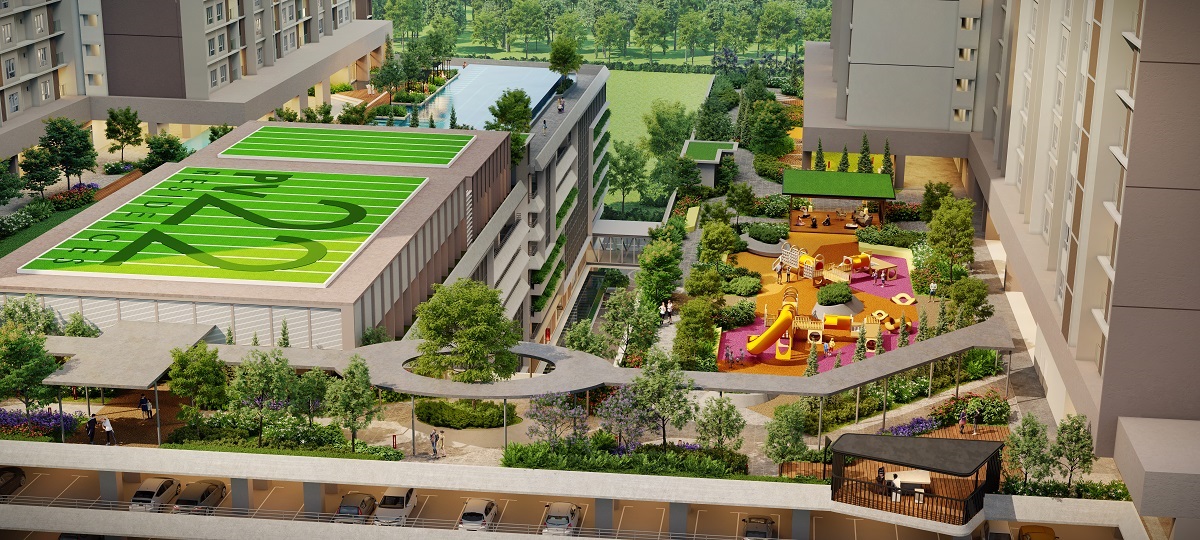
- No rightful homeowner should be disadvantaged in any scheme in the name of redevelopment, rejuvenation or revitalisation when there are plenty of reasons such a move is unnecessary.
“Nga: Urban Renewal Act targeted to be tabled next year”, states the headline.
Citing minister of Local Government Development Ministry (KPKT) Nga Kor Ming, the report says “the Act is crucial to ensure systematic, well-planned and efficient urban renewal developments that will boost Malaysia’s economy”.
He explained that “the proposed legislation would lead to better redevelopment planning for isolated, old and uneconomical areas and turn them into zones that can offer good quality of life to urban dwellers”.
In another report, Nga said the ministry would do a “regulatory impact analysis” before proposing a new rate for the “consent threshold”, which currently requires 100% agreement from strata-title owners before any renewable measures is permitted.
Percentages that have been touted by industry players are: 90% for buildings less than 10 years old; 80% for those between 10 and 20 years old; and 75% for those above 20 years old.
According to Nga, Kuala Lumpur City Hall (DBKL) has identified a total of 139 sites with a total area of 1,297ha for redevelopment.
The minister hopes “once the Act is in place, it would apply to all states”, including Sabah and Sarawak.
Contravention of Article 13 – rights to own property
The National House Buyers Association (HBA) reads with trepidation at this resurfaced issue, which we thought had been put to rest in 2019.
HBA strongly opposes any setting of a “consent threshold”, save and except 100% participation. HBA’s stand is that any redevelopment, rejuvenation or renewal plan must receive the consent of all because every owner is important.
While some quarters have viewed this proposed Urban Renewal Act as a step in the right direction, HBA reiterates this is a regressive move because it would become an unconstitutional piece of law that circumvents Article 13 in our Federal Constitution, which stipulates the rights to own property in this country.
Proceeding with a “consent threshold”, or better known as “en-bloc sale” with any rate of majority vote will deprive certain homeowners of their properties. As such, the purported redevelopment law will be in blatant contravention to Article 13 of the Federal Constitution, and the passing of such a law will not legitimise it.
We hope the present Government will not emulate the footsteps of its predecessors who tried to ignore the unconstitutional impact such a law would have on homeowners, whether within or without the Federal Territories. And if we are not careful, the potential redevelopment law could also be extended to cover landed non-strata schemes.
Does the Government not realise the implications and far-reaching damage the proposed law would have on Article 13 and the principles of indefeasibility of title as enshrined in the National Land Code (NLC) that we are all bound by? The Government seems to be under the mistaken belief that it can circumvent all these legal principles and take away a rightful property owner’s right to refuse by simply enacting a redevelopment law and impose the might of developers on homeowners. We hope the Government is not being swayed by the whispers of mercenary developers whom the Government often refers to as economic drivers.
Another guise for en-bloc strata (forced) sale?
We can certainly enact a law for the greater good of the public, but the MADANI Government must ensure, towards this end, the soon-to-be-tabled “redevelopment law” is not another guise for the impugned “en-bloc strata (forced) sale” proposal that was put forth by commercial developers more than 10 years ago, which was to accord them the right to “confiscate” land from owners for profit and not for any novel purpose of rejuvenation or benefits to owners.
En-bloc strata sale is where land with buildings erected on it is identified for acquisition by developers. More often than not, it is purely a commercial decision. The developers will then approach the owners and persuade them to part with their properties in consideration for, perhaps, the market rates. Once they obtain the land, the original buildings are demolished and a new development is erected on the land, most likely a mixed development encompassing residential and commercial components that are priced high above the original rates of the demolished buildings.
The aim, as perceived by HBA, is forceful acquisition of land eyed by developers for profitable returns. A law that facilitates en-bloc sale only enforces the might of the majority, with profit margin being the main purpose. It ignores the objections of those who do not want to dispose of their properties as it operates based on the majority rule.
Triggering war between 'sell' and 'stay' owners
Enacting this new law for en-bloc sale without obtaining the genuine consent of all the owners will pave the way for disharmony in any development – strata or not – and potentially lead to social unrest.
You will be surprised how a quiet and peaceful housing estate suddenly turns upside down when the talk of redevelopment aka en bloc begins. It is not a straightforward business deal. It involves money and emotion, and gives rise to mistrust and suspicion among neighbours. The minority homeowners may feel pressured to succumb to the majority who decide to trade their respective properties for returns.
Meanwhile, the main parties who benefit from all these are property developers and their agents who canvas their wares.
Good examples from Singapore and Hong Kong?
The KPKT minister has pointed out that the rates for the “consent threshold” are much lower in certain developed countries. The previous government administration also took Singapore as an example to justify the enactment of this law, but they did not take into account Singapore’s circumstances.
HBA has explained numerous times that, in Singapore and Hong Kong, there is only leasehold land for existing buildings, and new development land is scarce on the islands.
In Malaysia, we have both freehold and leasehold land, but what is more glaring is that we have significantly more land masses compared to Singapore and Hong Kong. The latter two were ranked as the world’s third and fourth most densely populated countries respectively while Malaysia was ranked far behind at 46th, based on the United Nations’ data as at 2021.
While en-bloc sale is arguably a necessary evil in Singapore and Hong Kong due to the pressing need for urban redevelopment, this argument does not apply to Malaysia.
Why encourage urban migration to already congested cities?
In Malaysia, there is plenty of development land within the Greater KL vicinity, without having to saturate the capital city with more high-end condominiums and commercial buildings, which are already bogged down by overhang and low-occupancy issues.
Of course we need to develop our cities, but Kuala Lumpur and its fringes are already congested enough. We have to avoid over-building within the city.
Studies have shown the adverse effects of urban migration. What is required is to develop other parts of the country so Malaysians do not have to keep huddling into the Klang Valley for jobs.
Why don’t we develop the outskirts around the various railway-station towns? The policy makers should ask the Railway Assets Corporation for its co-operation towards nation building.
Minority’s concerns negligible?
The ministers then and now also seemed to be in the dark about the effect Singapore’s en-bloc sales have on the homeowners who objected.
While the minority owners in the city republic are given replacement units on the renewed and redeveloped land itself and not in some far-off tertiary location, the success stories do not highlight the plight of the minority owners who are often old folks and the infirm, who tend to face hardships in adapting to new surroundings.
They may not want to sell their properties even with considerable compensation because they have lived there their entire lives – raising families, losing their spouses, etc. Is the MADANI Government saying that these considerations are negligible compared to the money made under the name of redevelopment?
We have to be mindful that property issues are different from company or corporate arrangements where the majority shareholders in a company can make decisions without garnering the consent of the minority shareholders, provided it is done for the benefit of the company. The minority shareholders in such cases are still rewarded. Not so for homeowners who fall into the minority segment should such a draconian law be allowed.
The younger owners may have the means to easily relocate and adapt to new surroundings, but the older ones often have difficulty doing so.
Does this proposed law envision the right of the minority should they want to be given a replacement home on the same site after redevelopment without having to pay extra, including all expenses for temporary accommodation to be borne by the developers?
How will the proposed law guarantee the rights of the minority owners as enshrined under Article 13 and the owners’ indefeasible titles over their properties? HBA’s view is that there are no guarantees.
Old buildings out of place and unsafe?
Most of the targeted properties for redevelopment are older strata buildings, especially in the KL city, so the proponents argue that they no longer complement the modern high-end buildings surrounding them.
However, HBA notes that developments in the 90s were fairly well done with moderate density and plenty of open spaces under decent planning guidelines.
In contrast, developments in the city today are only based on maximising profits with maximum density. It is unlikely for existing infrastructures that have sustained a block of walk-up flats built 40 years ago to cater to a new development of 50 storeys on the same site, regardless any sustainability strategies. Worries about traffic congestion, increase of carbon footprint, infrastructure challenges and accessibility to basic amenities are valid.
Some argue that the old buildings’ worn-out conditions make them dangerous for occupation.
If that is the case, why did the MADANI government allocate RM50 million to repair run-down lifts in low-cost strata houses in Budget 2023? Doesn’t that mean that with proper care and maintenance, old buildings can continue to be liveable?
We also have the Strata Management Act 2013 (SMA) that provides for contributions by owners to the maintenance account and sinking fund account so that strata buildings can be properly maintained, refurbished and upgraded without falling into disrepair.
There are sufficient laws in place to push for sprucing up dilapidated buildings without sacrificing the interests of the owners. If the entire MADANI Government are genuine in intentions, perhaps they should look at the Uniform Building By-Laws to see what upgrades could be introduced so that older buildings are safer and cleaner for their occupants.
In the oft-cited Desa Kudalari Condomimium, whose attempt at “en masse sale” was stopped short by the objection of about 30% of the owners, some quarters have claimed, subsequently, the building became so dilapidated that its value dropped way below that offered by the developer as compensation for the en masse sale.
However, the last HBA checked, Desa Kudalari is doing very well under a new team of management committee, which comprises mostly of owner-occupiers, rather than investors who are all too eager to dispose of the property for a quick profit.
Current law enough to effect land acquisition
We already have a reasonably just law in place for acquisition of land named the Land Acquisition Act, which includes procedures to ensure no forceful acquisition is undertaken without considering the interests and opinions of all the owners, not just the mere majority. There are prescribed justifications provided in the said Act, which are basically confined to the “benefit of the public” and not for commercial interests.
Even with these prescriptions in place, abuse has been known to happen, where owners have been hoodwinked by unscrupulous developers with the “assistance” of the authorities.
The current Land Acquisition Act and the SMA, which are in line with Article 13 and section 340 of the NLC, is already adequate to be effected in cases where redevelopment is needed.
Yet, the minister says the current Land Acquisition Act is against redevelopment. Why are we furthering the potential of abuse of innocent owners being short-changed into giving up their homes and properties with another irrelevant practice and law?
Homeowner’s right to decide
Homeowners should have the freedom to decide how to redevelop their housing schemes without a law that allows the majority and third parties to override the constitutional right of minority homeowners who may have no living relatives or a voice.
Until and unless a building is declared “condemned” by an area’s respective local council, no building should be demolished without the willing prior consent of all its owners.
HBA hopes the MADANI Government will not be swayed by any one-sided persuasions and impulsively condone the unconstitutional position to take away the rightful properties of Malaysians all in the name of rejuvenation, renewal, reinvigoration or redevelopment, which we view as surface slogans to hide the nefarious intentions of certain avaricious property developers who walk the corridors of power.
If the Urban Renewal Implementation Guidelines launched on Sept 5 is deemed a fair and holistic proposal where no single owner is disadvantaged and short-changed, why doesn’t KPKT reveal its details for public opinion?
This article is written by National House Buyers Association (HBA) honorary secretary-general Datuk Chang Kim Loong. HBA is a voluntary non-government and not-for-profit organisation manned wholly by volunteers.
HBA can be contacted at:
Email: [email protected]
Website: www.hba.org.my
Tel: +6012 334 5676
The views expressed are the writer’s and do not necessarily reflect EdgeProp’s.
Looking to buy a home? Sign up for EdgeProp START and get exclusive rewards and vouchers for ANY home purchase in Malaysia (primary or subsale)!
TOP PICKS BY EDGEPROP

Bandar Puncak Alam
Bandar Puncak Alam, Selangor

Bandar Puncak Alam
Bandar Puncak Alam, Selangor

